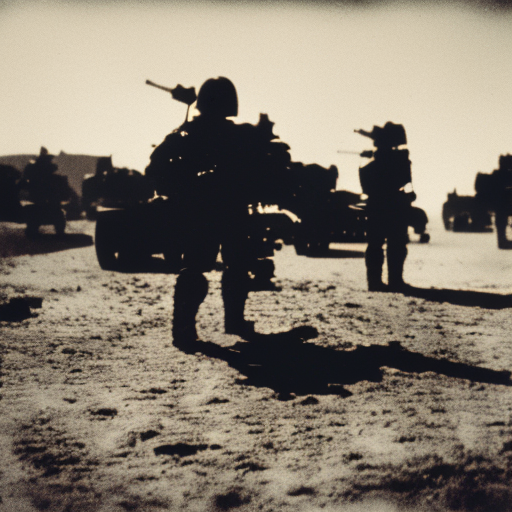Battle of Mars-la-Tour: A Desperate Struggle for Control
The Battle of Mars-la-Tour was a significant engagement that took place during the Franco-Prussian War on August 16, 1870. It was fought between the French Army of the Rhine, commanded by Marshal François Achille Bazaine, and the Prussian Army, led by General Karl Friedrich von Steinmetz. The battle was part of the larger campaign to capture the strategic city of Metz in northeastern France.
The Prelude to Battle
After suffering a series of defeats, the French Army of the Rhine retreated to Metz, where they sought to regroup and defend the city. However, the Prussian forces, under the command of Field Marshal Helmuth von Moltke, were determined to surround and besiege Metz. To achieve this, they needed to secure the vital road and railway junction at Mars-la-Tour.
The Battle Begins
On August 16, the Prussian forces encountered the French at Mars-la-Tour. The battle began with a series of skirmishes and artillery exchanges as both sides sought to gain the upper hand. The Prussian artillery, equipped with more modern and accurate Krupp guns, inflicted heavy casualties on the French forces. However, the French were able to hold their ground and prevent the Prussians from advancing.
The French Counterattack
Realizing that they were outnumbered, Marshal Bazaine ordered a counterattack to break through the Prussian lines and relieve the pressure on Metz. The French forces launched a series of assaults against the Prussian positions, but they were met with fierce resistance. The Prussians, well-entrenched and supported by their superior artillery, repelled the French attacks with heavy losses.
The Desperate Defense
As the battle raged on, the French found themselves increasingly isolated and surrounded. The Prussians, reinforced by fresh troops, launched a determined assault to break the French lines. The French soldiers fought valiantly, but they were gradually overwhelmed by the superior Prussian firepower and numbers.
The Retreat
With their situation becoming increasingly untenable, Marshal Bazaine ordered a retreat towards Metz. The French forces, battered and demoralized, fought a desperate rearguard action as they withdrew. The Prussians pursued them relentlessly, inflicting further casualties and capturing a significant number of prisoners.
The Aftermath
The Battle of Mars-la-Tour was a costly engagement for both sides. The French suffered heavy losses, with over 16,000 casualties, including killed, wounded, and captured. The Prussians also suffered significant losses, with over 9,000 casualties. However, the battle was a strategic victory for the Prussians. They were able to secure the road and railway junction at Mars-la-Tour, which facilitated their subsequent siege of Metz.
The Battle of Mars-la-Tour demonstrated the effectiveness of Prussian artillery and their superior military organization. It also highlighted the challenges faced by the French Army, which was plagued by poor leadership and outdated tactics. The battle further weakened the French position in the war and contributed to the eventual collapse of their resistance.
In conclusion, the Battle of Mars-la-Tour was a desperate struggle for control between the French and Prussian forces during the Franco-Prussian War. Despite the French’s valiant efforts, they were unable to withstand the superior Prussian firepower and were forced to retreat. The battle had significant consequences for the outcome of the war, as it allowed the Prussians to tighten their grip on Metz and further weaken the French position.












